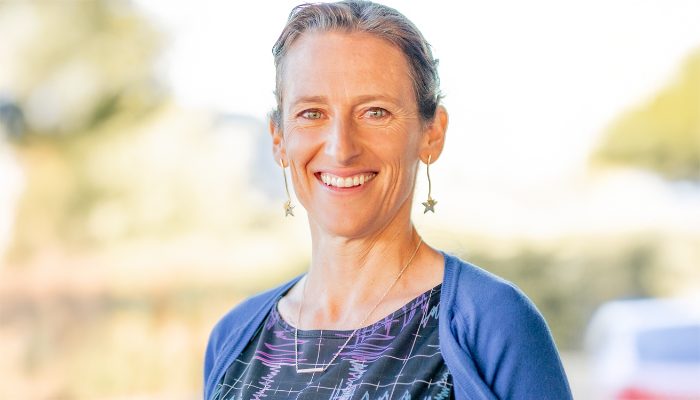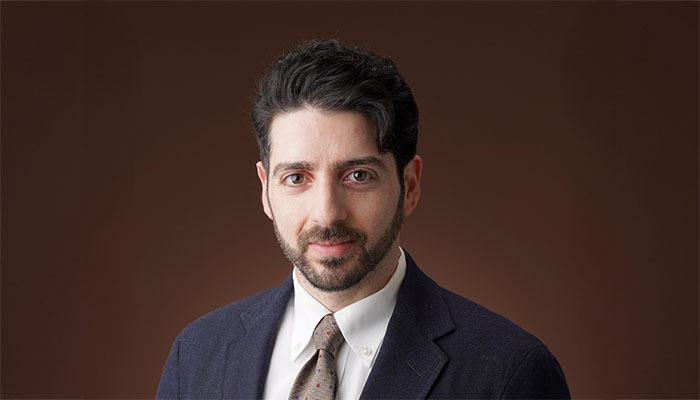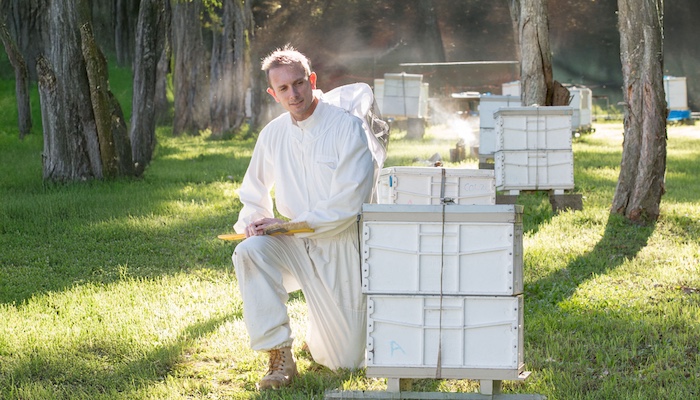Five projects were funded under the National Health and Medical Research Council (NHMRC) Ideas Scheme, two under the NHMRC Investigator Grants Scheme, and one under the NHMRC-EU Collaborative Research Grants Scheme.
Deputy Vice-Chancellor (Research) Professor Sakkie Pretorius congratulated the research teams on their funding success.
“It is always very gratifying to see the hard work and dedication of Macquarie researchers being recognised and rewarded with highly competitive grants such as those awarded by the NHMRC,” he said.
“These projects will tackle important problems in health and in the community, and they have the potential to make a real difference to the way we support people as they deal with challenging health conditions, ultimately leading to improved outcomes and world-changing impact.”
Ideas Grants
A four-year project led by Professor Lars Ittner from the Dementia Research Centre in collaboration with Dr Briardo Llorente from the Australian Genome Foundry to develop new biological drugs to treat Alzheimer’s disease receives $1,450,494. Therapeutic options for dementia are limited and ineffective. Professor Ittner and his team have previously identified a critical mechanism that drives memory loss and degeneration of the brain. This new project will develop a novel class of drugs specifically designed to disrupt this disease mechanism to slow/stop the progression of symptoms. This new approach will be tested in preparation for future clinical trials.
Dr Janet Van Eersel from the Dementia Research Centre receives $1,034,448 to develop next‑generation gene therapy vectors for the treatment of epilepsy. The neuronal cells of the brain use electrical signals to communicate with one another, but in disorders such as dementia and epilepsy, this electrical signalling can become excessive, causing the neurons to become overstimulated, which has a detrimental effect on brain function. The three-year project aims to develop several new gene therapies that can prevent brain cells from becoming hyperactivated in order to treat disorders such as epilepsy and dementia.
Dr Esther Lim from the Precision Cancer Therapy Group receives $950,118 for a project titled, ‘Precision-based strategies to overcome treatment resistance in dedifferentiated melanoma’. The project will run over four years. Melanoma cells have the unique ability to dedifferentiate, switching from a proliferative to an invasive cell state. Dedifferentiated cells are present in all melanoma tumours and are resistant to current clinical therapies. There is an urgent need to better understand this cellular state as patients with dedifferentiated melanomas have few effective treatment options. This project aims to answer the critical question of how patients with dedifferentiated melanomas can be treated effectively. The team includes researchers from the University of Sydney.
Professor Roger Chung from theCentre for Motor Neuron Disease Research receives $794,115 over three years for a project titled, ‘Developing novel gene expression control mechanisms for ALS (MND) gene therapies’. Gene therapies represent an exciting therapeutic opportunity for the treatment of MND, involving the delivery of a therapeutic gene to the target cell (such as the motor neuron). This project will develop a novel method for precise control of therapeutic gene expression by a gene therapy.
A project led by Professor Bamini Gopinath from Macquarie University Hearing receives $660,737 over three years for ‘HearHealth: A co-designed online support service empowering consumers with hearing loss’. Hearing loss affects one in seven adult Australians and is the third most common cause of disability globally. This study involves the co‑design of HearHealth, a novel online support service, in conjunction with Deafness Forum Australia (the peak body for people with hearing loss) and Google. HearHealth will provide access to credible, consumer-friendly educational materials and resources, facilitate improved perspective of hearing health needs and hearing loss risk factors, and promote behaviour change via online self-assessment and tailored care plans. Partners in this project include Curtin University, University of Sydney and University of Wollongong.
A project led by Dr Alison Hogan from the Centre for Motor Neuron Disease Research receives $620,989 for a project titled, ‘TDP-43 nuclear depletion in MND – potential driver of neurodegeneration and therapeutic target’. Loss of the TDP-43 protein from the nucleus of neuronal cells is observed in about 97 per cent of MND patients, 50 per cent of patients with frontotemporal lobar degeneration, and up to 57 per cent of Alzheimer’s disease patients. This three-year project will investigate the link between this altered TDP-43 behaviour and cell death, and test a novel means of preventing this toxicity.
Investigator Grants
Dr Jia Li from Macquarie Medical School receives $662,040 for a project titled, ‘Unravelling mechanisms of blood-brain barrier disruption for developing innovative therapeutics against brain diseases’. The blood-brain barrier is designed to protect the brain from any toxins or pathogens that might be circulating in the blood, but it also prevents many treatments from reaching the brain. This five-year project aims to uncover the causes of different brain diseases such as stroke and dementia, then use that knowledge to create treatments tailored to each patient’s specific needs.
Conjoint Associate Professor Dr Chrishan Nalliah of Macquarie Medical School has been awarded $662,040 over five years for a research project on atrial fibrillation (AF) and obstructive sleep apnoea (OSA). AF is the most common heart rhythm disorder in humans and is a common cause of stroke and disability. OSA, a condition where the airway closes during sleep, is very common in patients with AF. This project will evaluate how the two conditions are connected, aim to develop effective treatments for OSA that may reduce the severity of AF, and evaluate the impact of the treatment on stroke risk.
EU Collaborative Research Grant
Dr Louise Ellis, Professor Jeffrey Braithwaite and Professor Robyn Clay-Williams from the Australian Institute for Health Innovation have been awarded $499,225 by the NHMRC-EU Collaborative Research Grant Scheme for a four-year project titled, ‘Strengthening resilience and mental wellbeing through the Support4Resilience (S4R) toolbox for leaders in elderly care’. Working with aged care leaders and informal carers in Australia and six European countries, the project team will develop, implement and evaluate a research-based toolbox to support leaders in improving the resilience and mental wellbeing of workers and caregivers across the sector. The Australian project team includes researchers from Macquarie University, University of Queensland, University of NSW and Australian National University.



